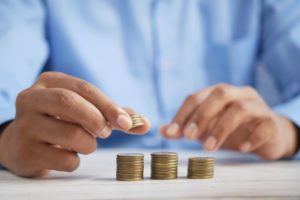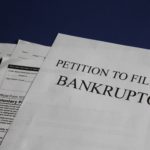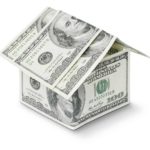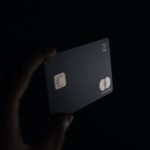Are you saddled with credit card debt? It can be a struggle to juggle monthly bills and the minimum payments owed to creditors. Furthermore, continuing to pay only the minimum each month means you’ll likely remain indebted to the credit card issuers for several months or years to come.
In this guide, you’ll learn how to pay off your high-interest credit card debt with different loan options, the benefits and drawbacks of this method and where to get help with your balances if they’re too excessive to manage.
Can You Use a Loan to Pay Off a Credit Card?
You can use a loan to pay off a credit card. Doing so can help you get a lower interest rate if your loan’s APR is below your credit card’s APR. Loans also break balances into manageable monthly payments and offer stability thanks to their fixed interest rates.
What are Your Loan Options for Paying Off Credit Card Debt?
These are some of the choices you have to pay off credit card debt. Keep in mind that most of these choices involve hard credit checks from financial institutions.
Personal Loans
Pros:
- Receive the funds within a few days
- Spread the balance across manageable monthly payments
- Fixed-rate results in stable monthly payments
- Low interest rates if you have excellent credit
Cons:
- Higher interest rate since it is an unsecured loan, especially if you have bad credit
- The possibility of prepayment penalties
- Hard credit check
Balance Transfer Credit Cards
Pros:
- Introductory 0% APR for 12-18 months
- Rewards for every purchase
- Increase your credit limit since you have multiple cards
Cons:
- Balance transfer fees
- The possibility of getting deeper into debt
- Hard credit check
Home Equity Loans
Pros:
- Competitive rates
- Set a regular monthly payment
- It can cover high credit card balances if you have enough home equity
Cons:
- Your property becomes collateral
- Hard credit check
- A second mortgage
401(k) Loans
Pros:
- No credit check and quicker access to your funds
- Receive a lump sum payment
- Funded with your retirement account
Cons:
- Your retirement account won’t grow as much
- The risk of becoming more reliant on retirement funds and tapping into them for other expenses
Cash-out Refinance
Pros:
- You don’t have a second mortgage
- One of the best rates
- Put your debt under a single loan
Cons:
- Closing costs
- Hard credit check
- You get a new loan, which can hurt if you have a low rate on your current mortgage
Steps to Take Before Applying for a Loan
Applying for a loan can put you on the right path to paying off your credit card debt. Make sure you follow these steps to get the most out of the experience.
Assessing Your Credit Card Debt
Checking your credit card balance can help you assess how much you need to borrow for a debt consolidation loan. You can use various types of financing to consolidate your debt, such as a cash-out refinance. Credit card debt has some of the highest interest rates among the available types of debt. Any loan can be an upgrade, and you can use those proceeds to pay off your credit card company.
Reviewing Your Credit Score
Your credit score will impact the types of loans you can receive. People with higher credit scores end up receiving lower interest rates for their loans. A good credit score can help you score a lower rate than the average credit card interest rate. Check your score and see if you qualify for a lender’s financial products.
Comparing Loan Offers
Don’t accept the first offer you find. Comparing offers from multiple lenders can help you find the lowest rates and receive a higher loan amount. Review each lender’s website for more information about their products before making a decision.
What to Look for in a Loan
The rates and terms are critical for any loan. You can also look at the loan’s monthly payment to see if you can fit it into your budget. A loan with a low rate and reasonable monthly payments may be a good choice.
Ability to Consolidate Debt
Financial products like cash-out refinance loans make consolidating debt easier. You can tap into your home equity and typically get a lower interest rate than an unsecured personal loan. Most lenders will let you consolidate your credit card debt, but you should check to see if any of your credit card accounts have a balance transfer fee.
Interest Rates
Lower interest rates will make it easier to cover your monthly payments. Loans with higher interest rates hinder your ability to make meaningful payments toward the loan’s principal until the loan approaches the end of its term.
Loan Terms and Conditions
The length of the term impacts how much you owe each month. If you use a cash-out refinance, you can spread the payments over 30 years using the equity of your home. This flexibility will result in a lower monthly payment than if you took out a personal loan with a 5-year term.
Early Repayment Penalties
A personal loan lender or a mortgage lender may charge an early repayment penalty. A high penalty fee can be discouraging for people who want to pay off their debt early. The best personal loans and mortgages may have low penalty fees or none at all. If you do research and find a wide range of offers, you are likely to come across a loan with low or no penalties.
How to Apply for a Loan to Pay Off Credit Cards
Applying for a loan is an important financial decision. Once you feel confident about going this route, you can begin the process by determining what you need and comparing lenders.
Once you find a few good ones, you will have to apply online for loan offers. The application process will require basic information like your name, proof of income, proof of address, and other details. Financial institutions will walk you through the process, and the documents you use for one lender will also apply to another lender.
The type of loan you apply for depends on your financial situation and how you want to organize your finances. A cash-out refinance makes sense for homeowners who want to get extra cash to pay off their debt.
After submitting an application, you will hear back from lenders and receive offers. You can then decide which one is right for you. You don’t have to accept a loan offer and only have 30 days to accept most loan offers. After going through the closing and waiting three additional business days, you will have the capital. It’s then up to you to allocate some or all of the loan’s proceeds toward your credit card balance.
How to Pay Credit Cards Using Loans
Below is a breakdown of how to use loans to pay off credit card debt:
- Step 1: Explore your loan options. Not all loans are the same. So, you want to shop around with traditional banks, community banks, credit unions and online lenders to find a product that offers a competitive interest rate and other favorable loan terms. It’s also best if the lender doesn’t assess origination fees and prepayment penalties. Most importantly, consider lenders that feature an online pre-qualification tool on their website that lets you gauge your eligibility for a loan and possible terms without impacting your credit score.
- Step 2: Use the loan proceeds to pay off your outstanding credit card balances. Most lenders don’t stipulate how the funds can be used. But you want to promptly pay the credit card issuers to avoid the temptation to spend the loan proceeds elsewhere. Otherwise, you risk accumulating even more debt.
- Step 3: Avoid using credit cards. To piggyback off the last point, paying your credit cards off and using them again defeats the purpose. You’ll have both credit card debt and loan debt to worry about, which is bad news for your budget.
- Step 4: Start repaying your chosen loan option right away. Now that credit card debt is gone, you can use the money that was once allocated for minimum payments to pay down your loan. If possible, pay more than the extra each month to accelerate repayment and save a bundle on interest.
Is It a Good Idea to Use a Loan to Pay Off Credit Card Debt?
Consider the benefits and drawbacks before you decide to use a loan to pay off credit card debt.
Pros of Using a Loan to Pay Off Your Credit Cards
Here are some key advantages to keep in mind:
- You can escape the minimum payment trap and free up funds in your budget.
- You’ll streamline the repayment process by only paying one creditor instead of several each month.
- You can save a bundle in interest if the rate on the loan is lower than what you’re currently paying.
- You can get out of credit card debt quickly and pay off your loan at a faster rate than you would by paying the minimum to the credit card issuer each month.
- You can improve your credit score since your credit utilization, or the amount of available credit you have in use, will drop when you pay off the credit cards.
Cons of Using a Loan to Pay Off Your Credit Cards
Unfortunately, there are also downsides to paying off your credit cards with a loan:
- You could pay steep origination fees to take out a loan.
- You could rack up more debt if you use the loan for some other purpose or pay off the cards and use them again.
- You may not qualify for a loan with a low interest rate if your credit score is low.
- You could struggle to make the loan payments if you get a sizable loan with a short repayment period.
- Your credit score could decrease if the credit card issuer closes the accounts once the balances are paid in full.
Conclusion: Weighing the Pros and Cons
Using a loan to pay off your credit card offers a quick resolution. Advocates for the debt avalanche method will like this approach since you eliminate your highest APR debt and replace it with a lower APR. Due to the lower rates, loan repayment terms are often more generous than credit card terms.
However, it’s important to weigh several factors before making a decision. Some people enjoy chipping away at their credit card debt and having a sense of progress. The debt snowball method follows this mentality of making little progress while overlooking rates. It’s also important to consider how much a loan will cost after considering closing costs.
Borrowers with low credit scores can face several challenges when getting a loan. For these borrowers, APRs for loans may be even higher than their credit card debt. You can also see if you can make extra money with a side hustle and minimize your expenses so you can pay a credit card without getting a loan.
Weighing the pros, cons, and alternatives will help you feel more confident with your course of action.







